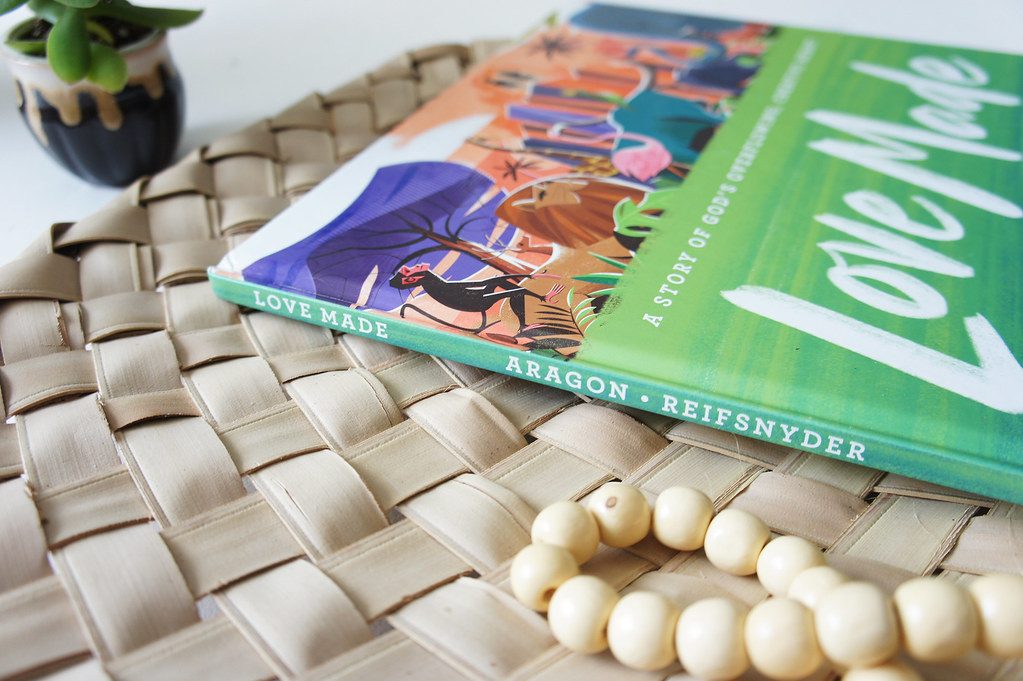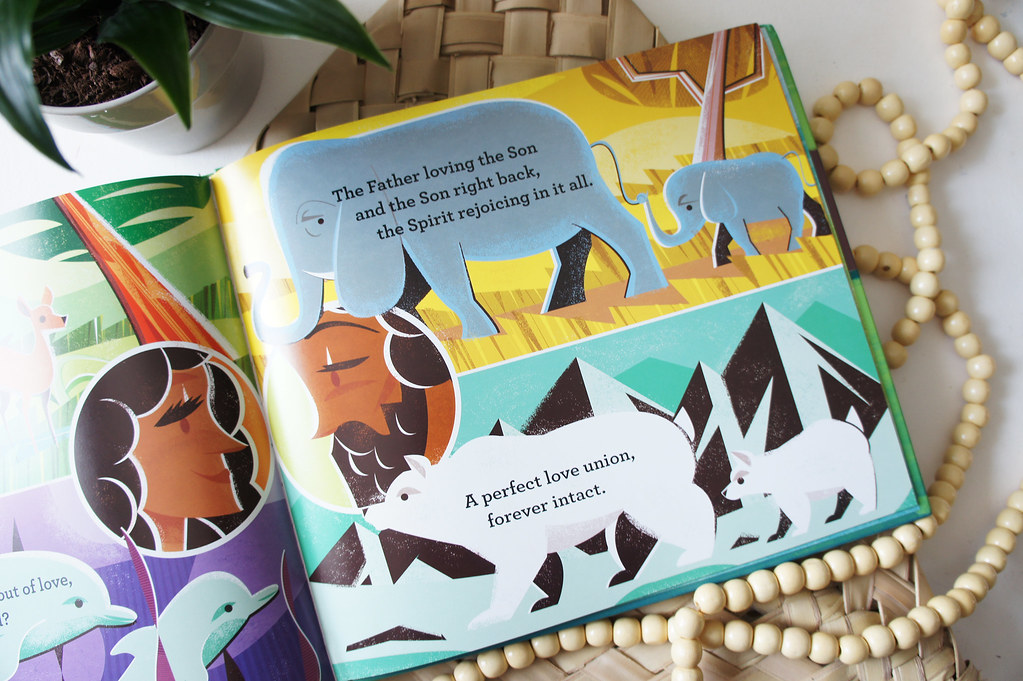Do you remember the phrase “it takes one to know one?” Who better to help us unearth the deep lyrical treasures found in the book of Psalms than an actual poet? Quina Aragon is an author and spoken word artist who understands the profound difference between putting pen to paper and performance. Isn’t that much like Scripture? We can spend our whole life studying the Bible, but unless we act on what we are reading, the full power of the words lies dormant and we miss out on what God has for us. It’s a grace to have Quina join us on the farm’s front porch today to discuss the abundant, overflowing riches that await us in the Psalms…
I’m learning to pray like my four-year-old daughter interacts with my husband.
She sometimes wants his cuddles, sometimes his silliness, sometimes his gifts (usually popsicles). She sometimes wants to know, “Why, Papi?” or throw a tantrum in front of him.
But she always wants him. Always. Can you guess what her first word was?
When a child has experienced a sort of infinite tenderness in her father’s face for as long as she can remember, she is free to approach him with snotty nose and muddy hands. Or in a princess dress with a big bow in her hair.
Her freedom, her joy, her trust in us convicts me. The more I observe my beloved daughter, the more I’m convinced: “unless you turn and become like children, you will never enter the kingdom of heaven” (Matt. 18:3). It’s almost poetic, isn’t it?
This is what the psalmists seem to grasp. Covenant is relationship. Deep, deep relationship. It seems like language fails to communicate the insatiable desire of God to be one with His people.









The word “union” seems the most appropriate term. But we need stories and word pictures and poetry to help us even begin to grasp this unending, incomprehensible, quite unbelievable love God has chosen to set upon us by His own free will.
Jesus’s Favorite Book
No wonder a good third of God’s Word is poetry.
God inspired Adam toward poetry when He gave him Eve. God taught and warned His people by teaching Moses a song. Job expressed His unfathomable suffering through poetry, and God spoke back likewise. The prophets often said, “Thus says the Lord,” and out came poetry.
And then there’s the book of Psalms. God taught His covenant people to write their sorrows, their joys, their fears, their longings in poetry for them to sing to Him again and again and again. It is apparently Jesus’ favorite book.
Doesn’t that make your mind explode with implications?
I think I’ve experienced at least two of them.
1. Our Union is Too Beautiful to Not Be Poetic
When I became a follower of Christ as a teenager, I began to pray aloud. It was the weirdest phenomenon. I kept wanting to read my Bible for the first time ever, but it was the praying that was most shocking to my bedroom walls, which had hitherto only heard my TV, my music, or my phone calls.
When I didn’t pray aloud, I wrote in a journal. I found that what flowed out of my pen looked like poems.
The Psalms are simultaneously the words of God and the words of God’s people. There’s that whole “union” concept again.
Christ in us and we in Christ. So deeply fused that His words become our prayers, and in the Psalms, vise versa.
The psalmists utter personal and corporate lament, confessions, praise, and exhortation. Their poems are the colors, tones, and hues of the human experience displayed most vividly through the lens of covenant with God. Union.
When my high school English teacher caught wind of my poetry, she all but forced me to perform my poems at the poetry slam she was organizing. I memorized and performed my not-so-polished poems about Jesus before hundreds of my peers. Some approached me with tears in their eyes to say that my poems reached them in a special way.
Somehow, fifteen years later, that still happens when I get the chance to perform poetry.
So I suppose the first implication is this: God could awaken our souls to His truth, beauty, and goodness any old way. But it seems He’s often pleased to do it through poetry expressed in song, in speech, and in drama.
Our union with God through Christ is not merely functional (we serve God, and thus prove fruitful), but beautiful (we are pursued at infinite cost to become the Bride of Christ, beloved children of God).
It’s too beautiful to not be poetic. The Psalms exhibit this relational reality of union with Christ, well, beautifully.
2. Embodying is Best
In my college performance communication class, we were taught to write our own performances, and then embody the text we wrote by performing it. We were taught to “steal like an artist,” grabbing inspiration from life, art, and others’ words in order to sculpt our own scripts, but in a way that makes our writing voice sound uniquely ours.
Every poet does it. The best poets steal the best. They’re inspired by things outside of themselves. They gather these inspirations together like ingredients, then masterfully cook a feast of words that makes you say, “This is unique! Fresh! It’s never been said like that!” And you’re not wrong to say that. Sure, there is nothing new under the sun. But there is something fresh to be said about anything and everything, especially the inexhaustible, living Word of God.
The Psalms were meant to be sung, embodied even. Gordon Wenham says the Psalms are a performative act—“saying these solemn words to God alters one’s relationship in a way that mere listening does not.” In so many ways, the prophets embodied God’s poetic words for His people.
Think: Moses’ leadership in Israel’s exodus, David’s shepherd-king life, Hosea’s marriage, Jeremiah’s Rechabite dinner party, Haggai and Zechariah’s hands-on rebuilding of the house of God, John the Baptist’s Nazarite-vow lifestyle.
And Jesus, the Word made flesh, quite literally embodied all of God’s words, including (especially?) the Psalms. He quoted them and He lived them.
It’s one thing for me to write a poem. It’s something else to perform it. As I practice, I experiment with my posture, my tone, my gaze, my breathing, my movements, all to communicate a fuller experience of words. By performing, I aim for empathy and conviction via emotion and motion. I seek to embody the text.
We learn something much deeper about a text when we embody it. That sounds like drama theory and theater . . . and sanctification. I think that’s the second implication.
The Very Poetic Words of God
So the Psalms teach us to pray like a beloved child of God.
They show us that union with Christ is far too beautiful to not be poetic.
And they encourage us to more deeply experience that union by seeking to embody the very words of God.
I don’t think you have to be a poet to appreciate all of that, but I suppose it doesn’t hurt.
Quina Aragon lives in Tampa, Florida, with her husband, Jon, and their daughter. They are members of Living Faith Bible Fellowship. Quina has contributed to several books, produced multiple spoken word videos, and performed for various organizations and events. Her first children’s book, Love Made, poetically retells the story of creation through a Trinitarian lens of overflowing joy and love.
Her latest book, the sequel to Love Made, introduces little ones to God’s greatest gift, Jesus. Love Gave is a lovingly written and exquisitely illustrated book that will help young children take small steps toward understanding key Christian concepts, such as sin, salvation, and sacrificial love.
Quina’s new book is sure to become a story time favorite for your whole family.








